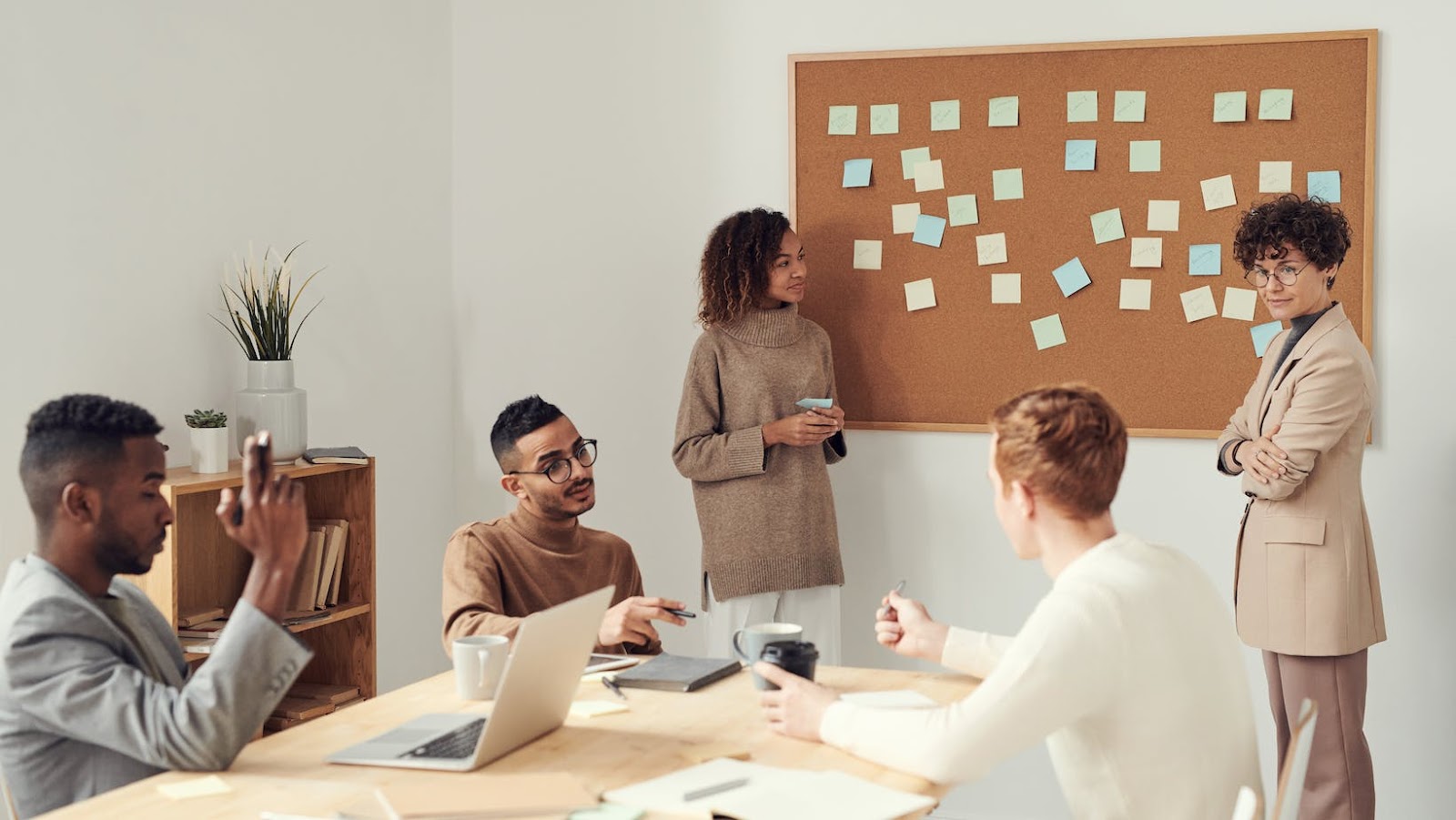 To Effectively Participate in a Group Discussion, Balance Must Be Maintained Between .
To Effectively Participate in a Group Discussion, Balance Must Be Maintained Between .
To effectively participate in a group discussion, it is essential to maintain a delicate balance between assertiveness and openness. Finding this equilibrium can be challenging, as one must navigate between expressing their own ideas confidently while also being receptive to the viewpoints of others. Striking the right balance allows for productive and inclusive discussions that lead to meaningful outcomes.
By maintaining this balance between assertiveness and openness, participants can promote healthy communication dynamics within a group discussion. This encourages active engagement from all members, leading to more comprehensive problem-solving, innovative ideas, and stronger collaborative efforts.
In conclusion, effective participation in a group discussion hinges on finding equilibrium between assertiveness and openness. Balancing these two qualities fosters respectful dialogue and promotes collaboration among individuals with varied perspectives. Such an approach paves the way for fruitful discussions that yield valuable insights and contribute to achieving shared goals.
Importance of Group Discussions
Group discussions play a crucial role in fostering effective communication, collaboration, and problem-solving among individuals. Whether it’s in academic settings, professional environments, or social circles, participating in group discussions can be highly valuable. Here are a few reasons why group discussions hold such importance:
- Diverse Perspectives: Engaging in group discussions allows individuals to gain insights from diverse perspectives. Each participant brings their unique knowledge, experiences, and viewpoints to the table. This diversity enriches the discussion by offering different angles and ideas that may not have been considered otherwise.
- Enhanced Learning: Group discussions provide an opportunity for active learning. When people come together to discuss a topic or solve a problem collectively, they can share their knowledge and learn from others simultaneously. This interactive process facilitates deeper understanding and retention of information.
- Critical Thinking Skills: Participating in group discussions helps sharpen critical thinking skills. It encourages individuals to analyze situations objectively, evaluate different arguments or solutions, and present well-reasoned opinions based on evidence and logical reasoning.
- Collaboration and Teamwork: Group discussions promote collaboration and teamwork as participants work towards a common goal or objective. Through open dialogue and respectful exchange of ideas, individuals can build trust, improve interpersonal relationships, and develop effective teamwork skills.
- Decision Making: Group discussions serve as platforms for decision-making processes where multiple perspectives are taken into account before arriving at a conclusion. By evaluating various options together, participants can make more informed decisions that consider multiple factors.
Active Listening in Group Discussions
When it comes to participating effectively in a group discussion, one crucial skill that must be mastered is active listening. Active listening is not just about hearing what others are saying; it’s about fully engaging with their words, thoughts, and ideas. It involves giving your full attention, understanding their perspective, and responding appropriately.
So how can we practice active listening in group discussions? Here are some key points to consider:
- Maintain Eye Contact: Making eye contact shows that you are focused and attentive to the speaker. It demonstrates respect and helps establish a connection between you and the person speaking.
- Avoid Interrupting: While it may be tempting to jump in with your own thoughts or opinions, interrupting can hinder effective communication. Allow the speaker to express their ideas fully before offering your input.
- Ask Clarifying Questions: If something is unclear or you need further information, don’t hesitate to ask for clarification. This not only shows that you’re actively listening but also helps ensure that everyone is on the same page.
- Show Empathy: Put yourself in the speaker’s shoes and try to understand their point of view without judgment or bias. Acknowledge their feelings and emotions, even if you may disagree with them.
- Provide Constructive Feedback: When it’s your turn to respond or offer feedback, focus on providing constructive criticism rather than simply criticizing or dismissing someone’s ideas. Offer suggestions for improvement or alternative perspectives while maintaining a respectful tone.
By practicing these active listening techniques during group discussions, you’ll not only enhance your own understanding but also contribute positively to the overall dynamics of the conversation. Remember, effective communication requires a balance between expressing your thoughts and actively engaging with others’ viewpoints.